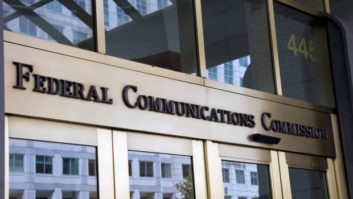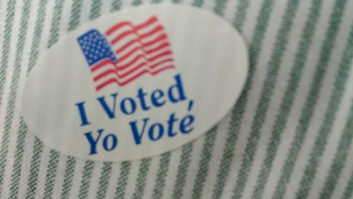
Updated with a link to the text of the order.
U.S. radio stations will have to upload public files online.
In a move that’s been expected for several years, the Federal Communications Commission moved to modernize the public inspection file rules for radio broadcasters and others.
The FCC has released a Report and Order that will require radio and satellite radio broadcasters — as well as cable and satellite TV operators — to begin to post public inspection files on an online database hosted by the commission. TV stations were required to make a similar transition earlier.
The stated goal is to modernize public inspection file rules to reflect the way Americans obtain information, while simultaneously minimizing the cost and burden of maintaining a public file. The expansion of the online file is particularly important with respect to improving public access to political files, said Mary Beth Murphy, deputy chief of the Media Bureau, who presented the order to the commission during its January open meeting.
The order requires that commercial radio stations in the top 50 radio markets who have five or more full-time employees begin being to commence online filing after the order becomes effective. All other radio stations will be required to begin online filing starting March 1, 2018.
The order clarified that stations are not required to upload public file documents that are already on file with the commission. In addition, radio stations will not be required to upload existing political files to the online file; rather, stations must begin to upload only new political content on a going-forward basis.
The order was approved unanimously though Commissioners Ajit Pai and Michael O’Rielly “concurred in part,” with Pai saying that he had been “particularly concerned about the impact of these new requirements on small cable operators and radio stations.” He welcomed the addition of a waiver option in the order that allows very small radio stations with fewer than five employees to request a waiver from the rules.
That was a concern shared by the National Association of Broadcasters, which had met with FCC staff in a series of on-site meetings to request that this order not place an undue burden on small stations.
Pai also expressed reservations about the requirement that noncommercial educational stations include lists of donors supporting specific programs in their online public file. “Numerous NCE stations told the commission that posting those names online would discourage people from making donations,” he said.
NCE stations will have the opportunity to file for a waiver, however, if they believe that posting donors’ names online would discourage financial support for particular programs. “Critically, an NCE station filing such a waiver request would not have to post donor lists to its online file until after the commission and the courts have finished reviewing that request,” Pai said. “This ensures that any NCE station will get full and fair consideration of its position before donor names are published online.”
Those stations that are temporarily exempt from online public file requirements are enouraged to do so voluntarily before the effective date of their online file requirement, and stations that have already fully transitioned to the online public file can cease maintaining a local public file (as long as they provide online access to a back-up file material).







